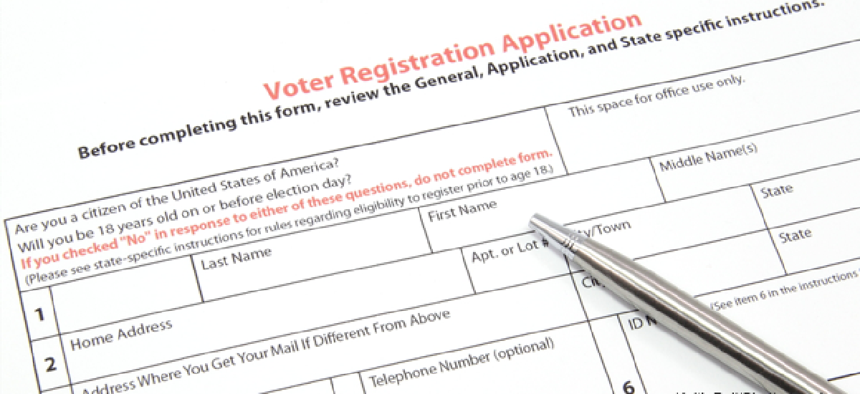Orange County cleans up its voter registration list

The Orange County Registrar of Voters turned to Experian Public Sector to help it verify addresses of inactive voters and save money.
When people move, they take care to shut off utilities, change their billing address and even get a new driver’s license. One of the last things on most people's minds is updating their voter registration information, a little oversight that was costing Orange Country, Calif., quite a bit of money.
In a county with 1.6 million voters on its rolls, costs associated with mandated election-related communications between government and citizens can really add up. If a voter’s address is wrong, for example, then the money spent on outreach is wasted.
"People tend to think about updating their information with us last," said Orange County Registrar of Voters Neal Kelley. "They'll update their magazine subscriptions before they contact us. When you factor in postage and printing, each bad address costs the county between three and four dollars."
And those recurring costs will only increase unless the voter list is pared down and made more accurate.
Yet tools available to Kelley and other registrars across the country trying to cull bad addresses are limited. In Kelley's case, he only had returned mail and the national change of address system from the Post Office to work with – both of which were problematic. The Post Office is not required to return sample ballots, so that information never gets back to the registrar. And if a resident doesn’t fill out a change of address form with the USPS, Kelley’s office had no way of knowing the new address.
Enter Experian Public Sector, which offers address verification services to government organizations that need help keeping their voting lists accurate.
Data collected by Experian is more accurate than what government customers can get, said Jill Canetta, vice president of marketing and operations for Experian Public Sector. "Since we are a credit bureau, we have to go through a cleansing process with our information," she said.
A name could be listed several different ways, depending on variations in spelling or if initials are used. “We bring all those instances together and find the right one, saving it as a single record," she said. Experian also captures data from sources like payday loan companies and rent bureaus, giving it information on people who may have never bought a home or applied for a car loan.
Experian Public Sector offered to take the Orange County list of voters and check it against its database of known addresses. By law, the county could only send Experian the name and last known address for 260,000 inactive voters – those who had not voted in Orange County for the past four years. But it was enough.
Once the proper addresses came back to Orange County, post cards were sent out to those voters. According to Kelley, 18,600 people sent back cards confirming that they had moved out of the county and were no longer eligible to vote there. Removing those people from the mailing list saved the county $80,000 in the next election. And had those bad addresses not been removed, the county would have kept trying to reach those people.
Other voters on the list had moved but were still living in Orange County. Their information was updated and their new polling place assigned. While that didn't save the county any money outright, it did make them active on voter rolls again and likely saved some confusion and time on election day.
The records Orange County sent to Experian were formatted into a text file, though Experian accepts a wide variety of formats: fixed, variable, CSV or Excel, Canetta said. "Input and output files can be mapped quickly to accommodate field positions so that limited effort is required of the user," she added. In addition, Experian guarantees a 24-hour turnaround for all government agencies for up to 250,000 records.
Orange County first checked its list in 2012 and then again in 2014. It was the first and so far only county in California to scrub its voter lists for accuracy using the Experian program. The county paid $25,000 to have its 260,000 inactive voter records checked, which works out to less than 10 cents per record.
Given the amount of both instant and ongoing savings the county received from that one run, Kelley said he anticipates keeping the lists up to date from now on using the same process.
"I think we need to do this every two years," he said. "But our list will get smaller as it gets more accurate. My guess is that in 2016 when we do this again, we will have half as many records that need checking as before."





